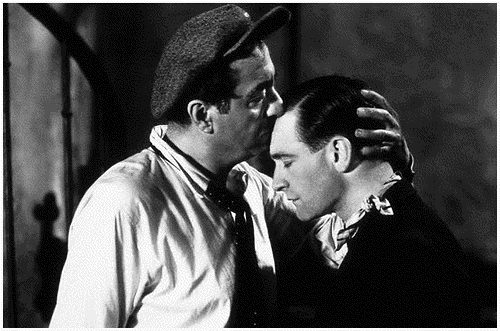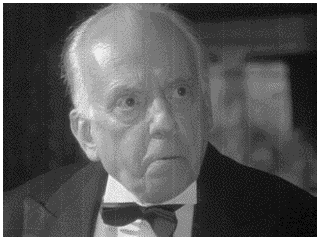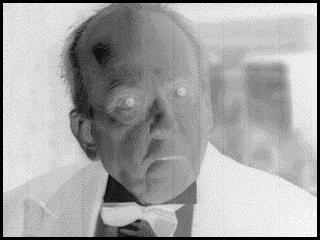Was New
Dominique Fabre
Jordan Stump, Translator
(Archipelago Books)

Seventy years ago, the French film director Marcel Pagnol produced three films about the ordinary lives of ordinary French people. It was known as "The César Trilogy." It told of a family who ran a café there on the waterfront in Marseille. They were the petit-bourgeois: "ordinary people," as one critic called them, "in everyday clothes."
When the Trilogy showed up at Pauline Kael's Studio/Guild in Berkeley, my wife and I went one evening and sat through the whole damn thing ... over six hours worth of French bourgeois life. I don't recall it as being especially gripping or demanding; there were no fireworks; but also I can't recall being bored.
I think of it as an elegant rendering of people caught up in ordinary life, the conflicts --- in this case --- between generations. Mostly it consisted of simple dialogue and great shots and wonderful faces.
Fabre has taken on a similar task in The Waitress Was New, offering a simple novel about a man with (apparently) a simple life.
Pierre's venue is Le Cercle. He's worked there for eight years. There's Amédée who runs the kitchen. He's from Senegal. And the boss, Henri. And Isabelle, his wife. (The new waitress, Madeleine, hardly counts for anything at all; why she appears in the title is a mystery.)
 There're all together there in a café called "The Circle." And what happens? Not much. How do you write about a French waiter in a tiny café in Asnières who has a hum-drum life? How do you keep it interesting? The tension, maybe, is just that: Is Pierre worth knowing; are his thoughts --- being raised an orphan; worried about keeping the tables clean --- worth listening to? Can you and I get excited about not getting excited?
There're all together there in a café called "The Circle." And what happens? Not much. How do you write about a French waiter in a tiny café in Asnières who has a hum-drum life? How do you keep it interesting? The tension, maybe, is just that: Is Pierre worth knowing; are his thoughts --- being raised an orphan; worried about keeping the tables clean --- worth listening to? Can you and I get excited about not getting excited?
He tells us more times than I'd care to tell you that his age is fifty-six, that his big job is keeping the bar clean. There are his dreams (recurring nightmares about the café), his teeth (bad), his prostate (worse), his boss (disappeared), the boss's wife (thinking that the boss her husband is having an affair). And then there is the matter of what Pierre does on his days off: he washes his clothes in the sink and often goes to another café to eat.
If you have ever been to France, or, hell, been in a restaurant anywhere, you may catch yourself watching an old waiter, wondering where he came from, where he is, where he is going. Then there is also that bedeviling fundamental humanist question: is his life, steeped in the dullness of repetition, a tragedy? What can a waiter be waiting for? Is he --- ultimately --- waiting on himself? To do what?
At the end, when Le Cercle closes down for good, what does Pierre do? He goes off, not to drown himself in the Seine, nor to jump out of his apartment window ... but to another café, where he has a beer, recognizes the waiter, and muses, "when you're in the business you recognize each other."
- Maybe a barman still served some purpose, after all?
he thinks. Then he goes off to bed.
 I started all this with Marcel Pagnol's Marseille Trilogy. Let me end it with Roman Polanski's very first movie. No, not Knife in the Water. It was another, his first student film, made in Poland, about an old woman, who sat all day, worked in a public men's room, in Warsaw. In most parts of Europe, at the time, there would be an old man or old woman who charged admission to use the public toilets, sold toilet paper by the piece at the entrance, accepted tips.
I started all this with Marcel Pagnol's Marseille Trilogy. Let me end it with Roman Polanski's very first movie. No, not Knife in the Water. It was another, his first student film, made in Poland, about an old woman, who sat all day, worked in a public men's room, in Warsaw. In most parts of Europe, at the time, there would be an old man or old woman who charged admission to use the public toilets, sold toilet paper by the piece at the entrance, accepted tips.
In his autobiography, Polanski said that he wanted to make a movie about this woman ... this simple toothless old woman ... "because she had a life too." He wanted to capture her, make something of her days and her life, make it seem, too, that she "served some purpose."
I also remember him writing that the hardest thing about making the film about her was making her interesting.